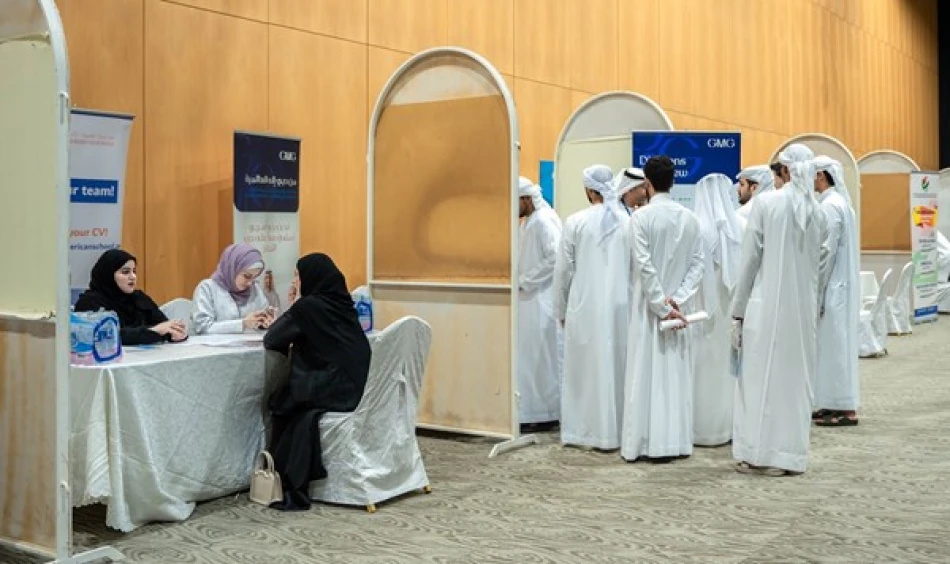
Ajman's Open Job Fair Wraps Up with Over 1,000 Interviews - Unlock Your Career Opportunities
Ajman Accelerates Emiratization Push with Major Job Fair Targeting Private Sector Placements
The UAE emirate of Ajman has intensified its drive to place Emirati nationals in private sector roles, organizing a comprehensive job fair that connected over 1,000 job seekers with 16 companies offering more than 500 positions. The initiative reflects the UAE's broader strategy to reduce dependence on expatriate labor while building a knowledge-based economy driven by local talent.
Immediate Impact and Scale
The open recruitment day, held at Ajman's United House, facilitated over 1,000 instant job interviews across diverse sectors including engineering, finance, nursing, human resources, management, education, and law. This direct-engagement approach represents a shift from traditional recruitment methods, emphasizing speed and efficiency in matching Emirati talent with private sector opportunities.
The event was jointly organized by Ajman's Human Resources Department, the UAE Ministry of Human Resources and Emiratisation, and the Emirates Competitiveness Council "Nafes" – signaling coordinated federal and emirate-level commitment to workforce nationalization.
Strategic Context: UAE's Emiratization Evolution
Beyond Quota Requirements
This initiative goes beyond the UAE's mandatory Emiratization quotas that require private companies to employ specific percentages of UAE nationals. By creating direct networking opportunities between employers and job seekers, authorities are addressing one of the key challenges in Emiratization: the perception gap between private sector expectations and Emirati career aspirations.
Competitive Regional Positioning
The UAE's approach mirrors successful workforce localization strategies seen in Saudi Arabia's Vision 2030 Nitaqat program and Oman's In-Country Value initiatives. However, the UAE's emphasis on immediate job placements and cross-sector diversity positions it as a more agile model for Gulf Cooperation Council countries facing similar demographic and economic transitions.
Market and Economic Implications
For participating companies, this recruitment model offers several advantages. Direct access to pre-screened candidates reduces hiring costs and time-to-fill metrics, while demonstrating compliance with government Emiratization expectations can improve their standing for future government contracts and licenses.
The focus on high-skill sectors like engineering and finance suggests authorities are targeting roles that offer career progression and competitive compensation – addressing historical concerns that Emiratization efforts concentrated on entry-level positions with limited advancement potential.
Long-term Workforce Transformation
Anoud Al Nuaimi, Director of Human Resources Policy Management at Ajman's HR Department, emphasized that the event aimed to "accelerate citizen employment and attract national competencies from various specializations." This language indicates a strategic shift from viewing Emiratization as a social obligation to positioning it as an economic competitiveness tool.
The multi-agency collaboration also suggests that successful models tested in individual emirates like Ajman could be scaled across the UAE's seven emirates, potentially creating a unified national approach to private sector workforce development.
As the UAE continues diversifying away from oil dependence, events like this job fair represent practical steps toward building the skilled local workforce necessary for sectors like technology, healthcare, and financial services that will define the country's economic future.
Most Viewed News

 Layla Al Mansoori
Layla Al Mansoori






